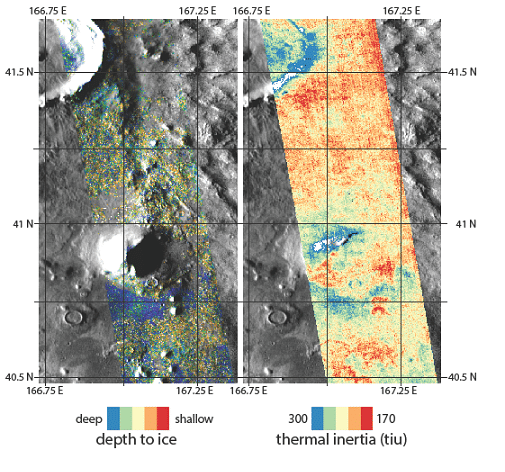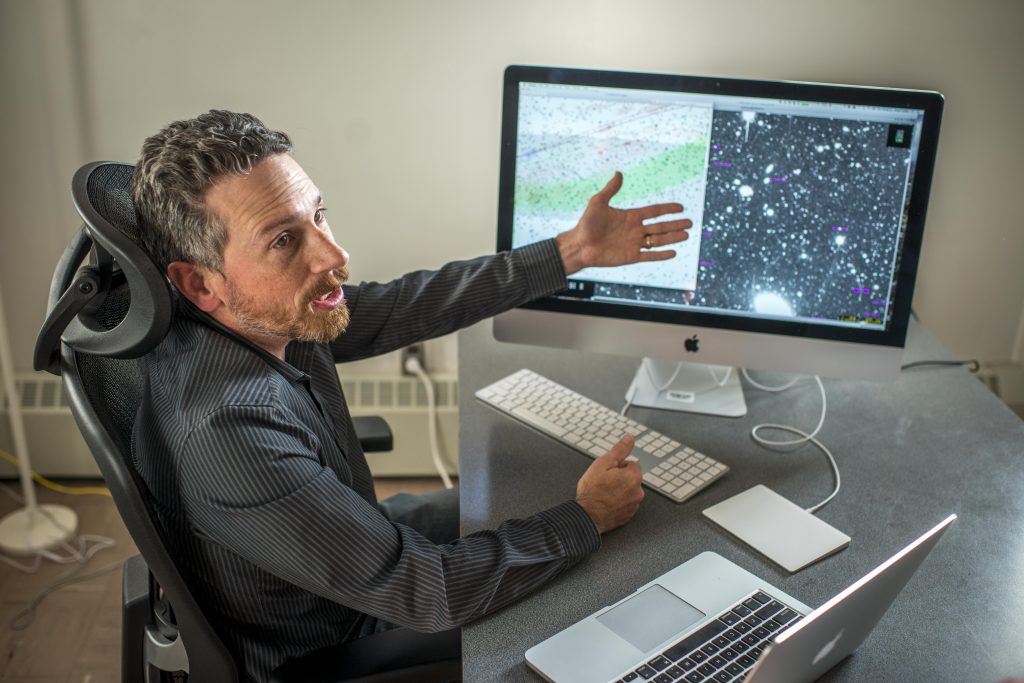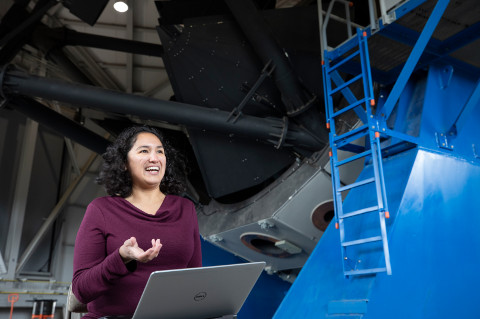
In anticipation of sending humans to Mars by 2033, NASA scientists are searching for suitable locations to land on the Red Planet. Ideally, these potential landing sites would have high scientific value for exploration while offering natural resources to sustain human life. In the last 20 years, the community studying Mars has made significant progress mapping and characterizing reservoirs of ice.
In a new study published… Read more
NAU planetary scientist Chad Trujillo awarded prestigious international Farinella Prize

Sept. 19, 2019
Chad Trujillo, assistant professor at Northern Arizona University, has been awarded the 2019 Paolo Farinella Prize by the Europlanet Society for his contributions in the field of planetary science concerning “The Trans-Neptunian Population.”
Along with collaborator Scott Sheppard from the Carnegie Institution for Science, Trujillo was honored at an award ceremony on Sept. 16 at the European Planetary Science Congress (EPSC) in Geneva, Switzerland. Shepard and Trujillo… Read more
New names, same strengths: The creation of two departments to help advance pioneering work in physics, astronomy fields
Aug. 29. 2019
With new Ph.D. programs, a new research center, a new college and expanded faculty, all in the last three years, new departments weren’t far behind.
This summer, the Department of Physics and Astronomy split into the Department of Astronomy and Planetary Sciences (APS) and the Department of Applied Physics and Materials Science (APMS). APMS is in the College of Engineering, Informatics, and Applied Sciences, while APS stays in the College of the Environment, Forestry, and Natural… Read more
NAU astrophysicist leads international team in ‘unprecedented’ discovery of unique infrared light signature on Neptune’s moon Triton

July 29, 2019
Triton orbits Neptune, the eighth planet from the Sun, some 2.7 billion miles from Earth—at the cold outer fringe of the Solar System’s major planet zone. Surface temperatures hover near absolute zero, so low that common compounds we know as gases on Earth freeze into ices. Triton’s atmosphere, which is 70,000 times less dense… Read more
Keeping Earth safe from impact: NAU astronomer worked with international team to conduct global planetary defense exercise

June 25, 2019
Scientists have discovered nearly all “extinction-scale” near-Earth objects, or NEOs (asteroids larger than one kilometer in diameter) and determined they pose no risk of impact in the near future. But there are still thousands of smaller NEOs that pose a potential danger.
NASA’s Planetary Defense Coordination Office (PDCO) coordinates the detection of potentially hazardous objects, characterization of those objects and response planning in the event of… Read more
NAU faculty help discover “Farout,” most distant solar system object seen
By KAITLIN OLSON, Sun Staff Reporter
Click HERE for the Arizona Daily Sun article.